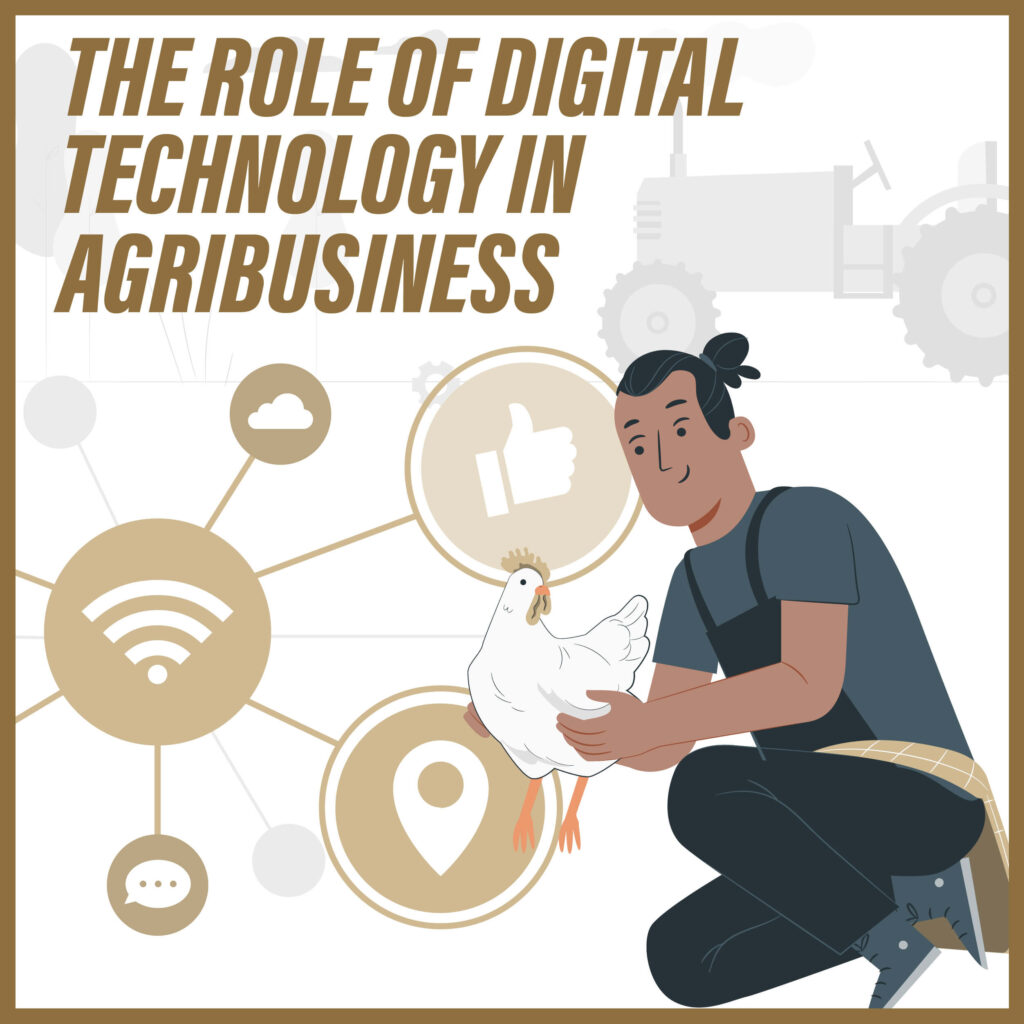The Role of Digital Technology in Agribusiness
Reviewer
Mati Mohammadi, PhD Student & Graduate Research Assistant, Purdue University Department of Agricultural Economics
See more from Mati on Twitter or LinkedIn.
Article
Exploring the impact of digital transformation on technology entrepreneurship and technological market expansion: The role of technology readiness, exploration, and exploitation by Vahid Jafari-Sadeghi, Alexeis Garcia-Perez, Elena Candelo, Jerome Couturier
Journal
Journal of Business Research- Volume 124, January 2021, Pages 100-111
Summary
This paper analyzes the effect of digital transformation on value creation and attempts to improve the current understanding of digital entrepreneurship. The authors looked at 18 hypotheses through panel data analysis of 28 European countries. Data was gathered between 2009 and 2015. The article authors categorized digital transformation into three clusters: technology readiness (e.g., ICT investments, access to internet), digital technology exploration (e.g., research and development), and digital technology exploitation (e.g., patents and trademarks).
Their results represent a significant relationship between digital transformation and entrepreneurship. Many reasons drive businesses to adopt digital transformation, including competitive pressures, technology readiness and the environment. Embracing digital transformation brings new opportunities for companies. In particular, it creates value at local and national levels and enables firms to expand their market and create social and economic growth.
Applying Lessons from the Study to Food and Agricultural Business
- This paper illustrates the significance of technology readiness in the business sector.
By investing in ICT, access to the internet and digital technologies, agribusiness firms and farmers will be technologically ready and able to expand their market. An increase in technology adoption will lead to productivity and efficiency in the agricultural sector (Ugochukwu and Phillips, 2018). Given the knowledge gained from this study, policymakers should develop a digital environment to enable small businesses to expand their markets. The rapid spread of information technologies and infrastructure will affect the market expansion via digital technology. Digital communication platforms and the internet will allow access to numerous new and distant markets, especially for small farmers.
- The authors found that R&D expenditure and the number of technicians engaged in R&D have a significant positive effect on the technological market expansion.
R&D plays an important role in the agricultural sector, as it leads to an increase in productivity and industry growth. Many studies support the role of R&D in agricultural input manufacturers in improving product quality. A significant amount of investment was found in the private sector in R&D. Fuglie (2016) reported that $15.6 billion had been invested worldwide by the private sector by 2014. According to the insight provided by this paper and in agreement with Fuglie’s findings and other studies, ag firms and policymakers should consider investing in digital technology exploration (research and development units) to facilitate information flow, expand markets, improve quality and increase profits. In this regard, the short-run and long-run effects of R&D expenditures should be taken into account.
- This paper’s results show a substantial positive correlation between the number of trademark applications and the market expansion. Additionally, a positive correlation exists between the number of scientific and technical journal articles and market expansion.
The value of patents and trademarks cannot be underestimated. Innovation in different parts of the agribusiness keeps the firms competitive and alive in the market. Intellectual property and ownership policies offer agribusinesses many opportunities to start a new business or enhance an existing one. Ownership of a trademark entitles firms to use the sign and name associated with the company. Different studies have shown that only large firms possess this right. Therefore, policymakers should incentivize the development of the R&D section in smaller firms, help protect their intellectual properties and implement strategies to embrace digital transformation at the macro level.
In general, this paper’s implications encourage managers, stockholders and policymakers to think about digital technologies and their applications, as well as to analyze big data to drive the company in a competitive environment and expand its market.
References
Fuglie, K. 2016. “The growing role of the private sector in agricultural research and development worldwide.” Global Food Security 10:29–38.
Ugochukwu, A.I., and P.W.B. Phillips. 2018. “Technology Adoption by Agricultural Producers: A Review of the Literature.” In N. Kalaitzandonakes, E. G. Carayannis, E. Grigoroudis, and S. Rozakis, eds. From Agriscience to Agribusiness: Theories, Policies and Practices in Technology Transfer and Commercialization. Innovation, Technology, and Knowledge Management. Cham: Springer International Publishing, pp. 361–377.
RELATED POSTS:
A trifecta of strategies for agribusinesses amidst unprecedented change
In navigating unprecedented change, agribusinesses must prioritize prediction, adaptability, and resilience to thrive in evolving markets.
The impact of diversification strategies on small and medium enterprises
Exploring diversification and its impact on businesses—insights for strategic resilience amid market uncertainties.
Navigating Resilience: Challenges and strategies in U.S. agricultural and food supply chains
Agribusinesses must balance resilience and efficiency amid disruptions, navigating complex trade-offs and policy impacts for sustainable supply chains.
